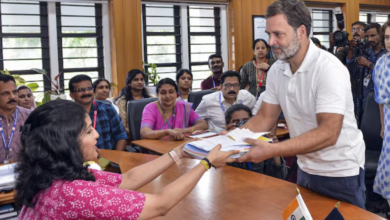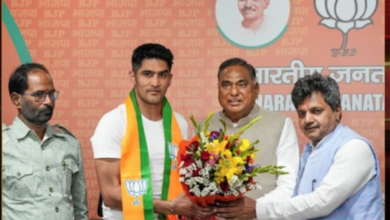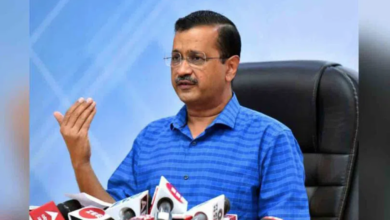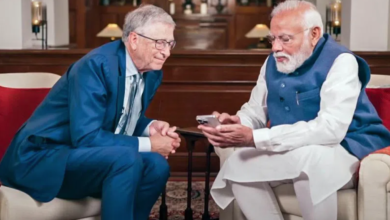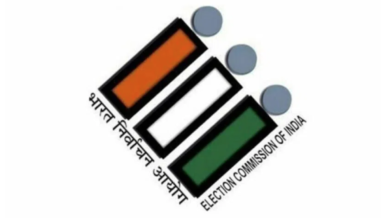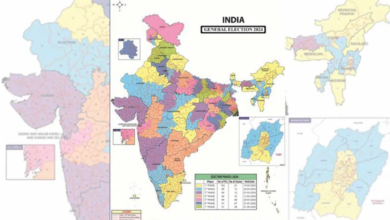Why Mamata banned The Kerala Story in Bengal
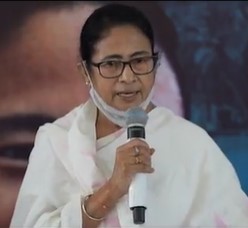
It couldn’t have been better timed to be the first chief minister of the country to ban The Kerala Story, a movie denounced by critics as allegedly vilifying Muslims and hailed by hardline Hindu activists and some BJP leaders as highlighting the ‘threat of Islamic terrorism’. West Bengal chief minister Mamata Banerjee did what some of her counterparts were perhaps dithering on.
With Union home minister Amit Shah setting foot in Bengal to participate in Rabindranath Tagore’s 162nd birth anniversary (May 9) celebrations, it couldn’t have been a more opportune moment for the BJP to rake up its narrative of Mamata’s alleged appeasement politics—the ban on the Sudipto Sen-directed film being a fresh trigger.
Union information and broadcasting minister Anurag Thakur has already said that Mamata has done “injustice to the sisters and daughters of West Bengal by banning the film” while Locket Chatterjee, the BJP MP from Hooghly, told news agency ANI: “She (Mamata) made a huge mistake. She doesn’t know Bengalis…If she is banning #TheKeralaStory, it seems Mamata Banerjee is anti-Hindu, anti-India and anti-women. The film is based on ISIS and nothing else. It means she is trying to ban this film to hide something.”
Mamata fears screening the film in Bengal would be potentially dangerous and things could take a disharmonious turn. “This (ban) is to avoid any incident of hatred and violence, and to maintain peace in the state,” read her government’s order on the ban.
Mamata has called The Kerala Story a “distorted” film and indicated that it was propaganda material. “Why did they make The Kashmir Files? To humiliate one section… What is The Kerala Story? If they can prepare The Kashmir Files to condemn the Kashmiri people… now they are defaming Kerala. Next, they will make ‘The Bengal Files’,” she said.
Mamata banning the film needs to be seen from a wider political perspective too. On the backfoot in terms of securing the minority vote-bank in the recent Sagardighi bypoll, which the Trinamool Congress (TMC) lost by 20,000 votes to the Congress-Left combine, Mamata has lately been on an overdrive with her Muslim outreach. The Sagardighi seat has an over 60 per cent Muslim population. Post defeat, Mamata has brought the minority affairs department under her, besides issuing a notification for completion of pending recruitments of madrassa teachers. Various other doles have been announced for the minorities.
The ban on the film may well be seen by some as an extension of such moves with the motive of securing the support of Muslim voters. The BJP’s Hindutva drive for the past two years failed to make much impact in Bengal. The BJP is no longer a close competitor of the TMC and, therefore, many Muslims in Bengal perhaps feel no reason to be alarmed of the party. Again, the BJP’s stand of going soft on Muslims as a part of its national policy of reaching out to the ‘liberal’ sections of the community is supposed to have minimised the reasons to go for a tight consolidation. The BJP’s vote share has dropped in recent polls. With the party politically weakened, minorities may not feel the need to unite under its principal opponent TMC.
This is something bothering Mamata, and may have prompted her to go hammer and tongs against the BJP and assure the minorities that she was their protector in Bengal. By banning The Kerala Story and saying that the film intended to “humiliate” one section of society, Mamata has made it clear that she will not allow majoritarian politics to override minority sentiments.
Communal polarisation in Bengal in the run-up to the Lok Sabha elections may suit both the TMC and the BJP. And this narrative will be important for both parties to reduce the battle to a binary, both in politics and religion, to make sure other political entities are irrelevant. With The Kerala Story ban, it is already evident. Interestingly, Mamata has hinted that what she did should have been done by the communists in Kerala. By alluding to the ‘communists’, she has managed to send another message to the minorities in Bengal that when it comes to protecting them, she is the safest bet.

